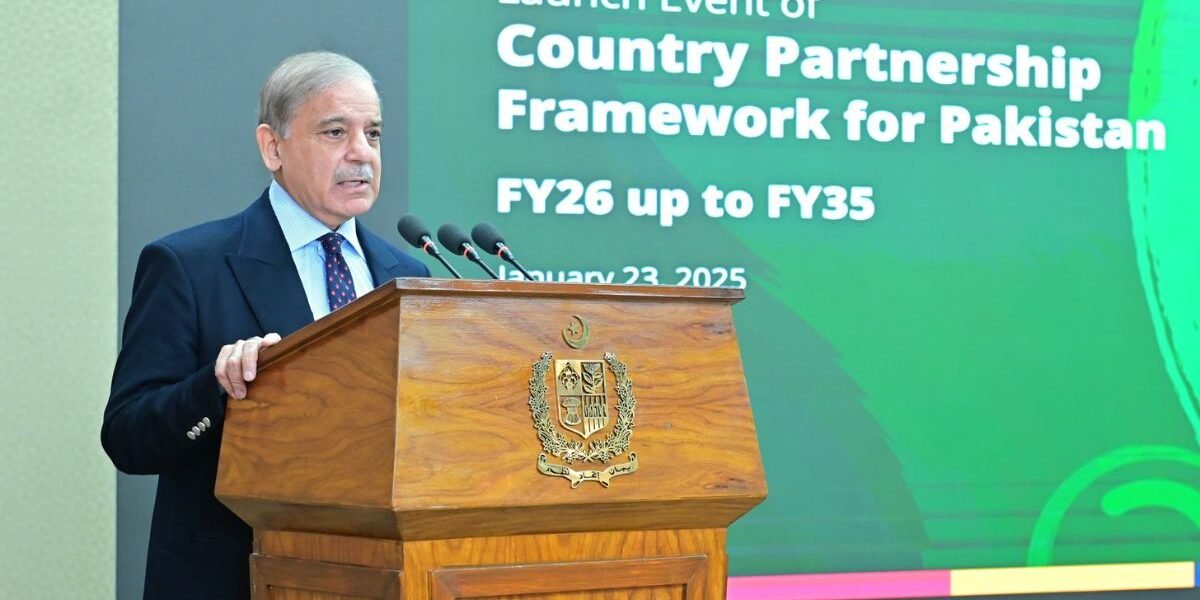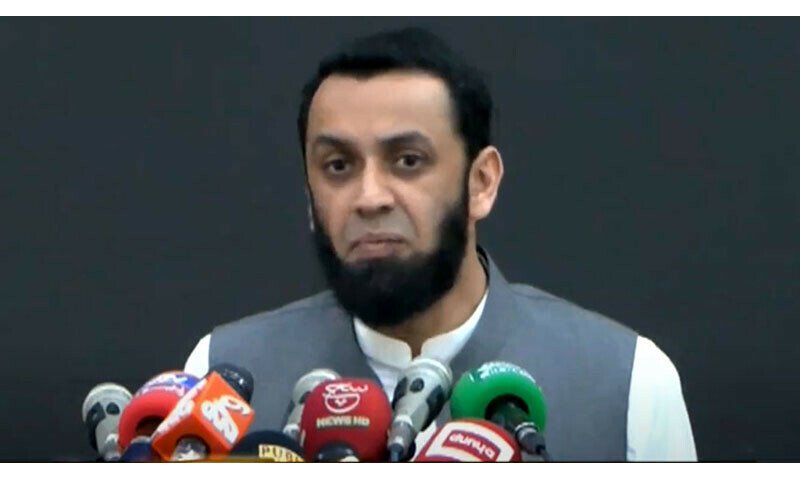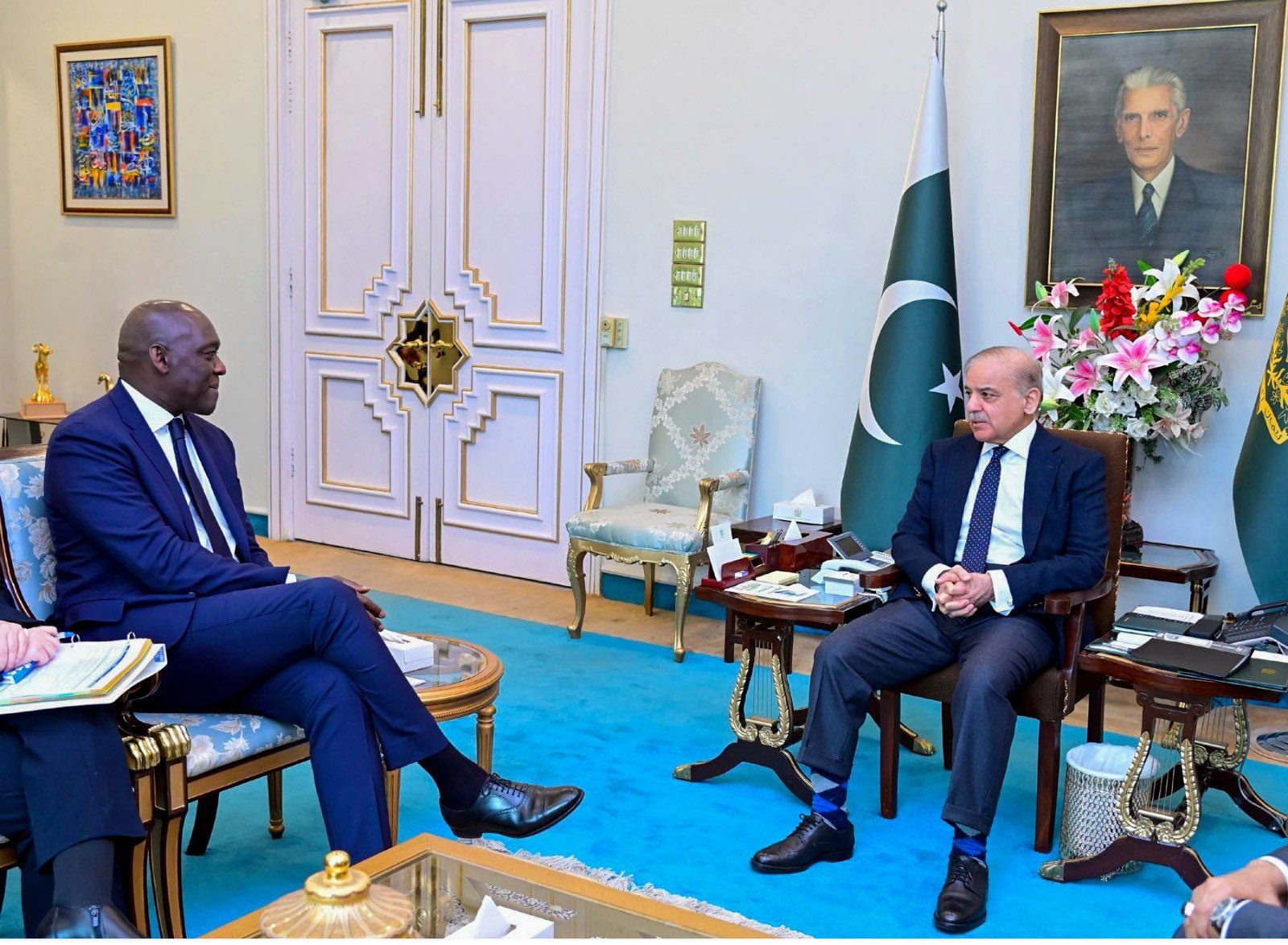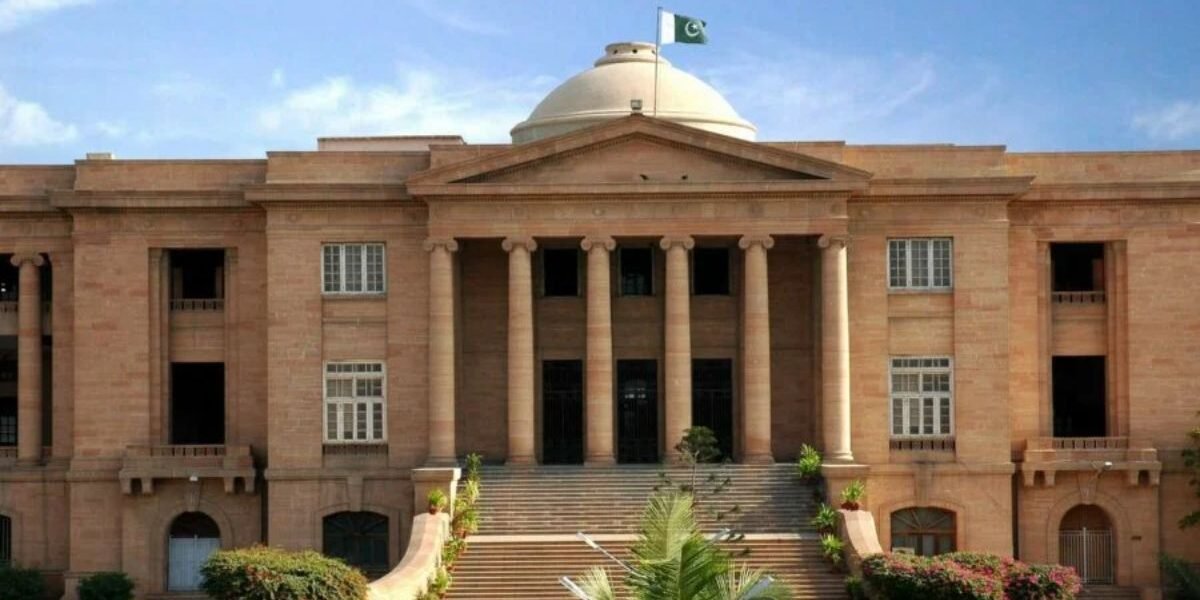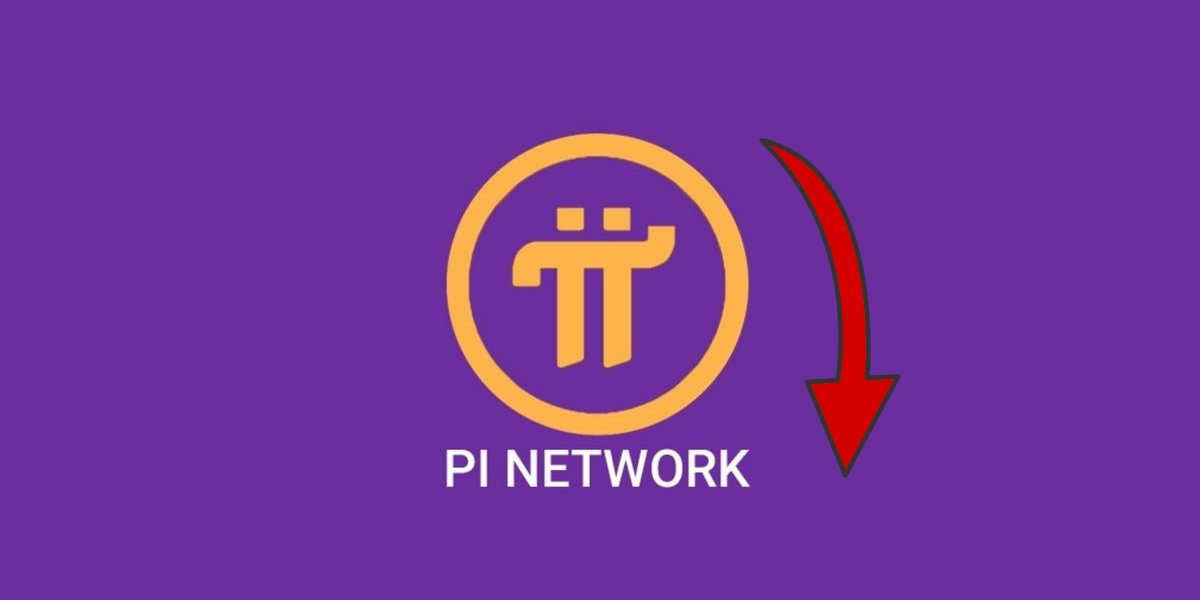ISLAMABAD: Prime Minister Muhammad Shehbaz Sharif on Thursday launched the World Bank’s multi-billion funding programme, Country Partnership Framework (CPF) for Pakistan from FY26 to FY35, at a ceremony held in Islamabad.
Speaking at a launching ceremony, the premier termed as a “timely intervention” to help Pakistan cope with several challenges, including the economy, poverty, and climate change crisis.
“Today is a great day in the history of Pakistan in terms of a very strong relationship with the World Bank,” he said.
PM Shehbaz said that the World Bank has supported Pakistan over the decades, adding that important projects were built in Pakistan with the World Bank’s support, ranging from hydel power generation in the water sector, and reforming various important organizations like the Federal Board of Revenue.
“This new programme, spans over ten years with an amount of twenty billion dollars, is a vision to transform Pakistan’s economy, enhance climate resilience, poverty alleviation, promote digitisation, agriculture and IT-led initiatives all over the country,” he maintained.
Islamabad: Prime Minister Muhammad Shehbaz Sharif addresses the launching ceremony of World Bank’s Country Partnership Framework for Pakistan. pic.twitter.com/yfXeZCRAs8
— Government of Pakistan (@GovtofPakistan) January 23, 2025
In his speech, the Prime Minister thanked the World Bank team particularly its President Ajay Banga, Vice President for South Asia Martin Raiser on behalf of the government of Pakistan for coming out with the innovative programme.
The expanded framework will focus on six key development sectors. The CPF will be complemented by additional funding from the International Finance Corporation (IFC).
The CPF aims to reduce child stunting, combat climate change, improve learning outcomes, provide clean water, and leverage public resources and private investment for inclusive development.
Specific targets include increasing tax revenue to more than 15 per cent of GDP, adding 10 gigawatts of renewable energy capacity, providing quality education to 12 million students and health care to 50 million people, including providing clean water and sanitation to 60 million people in the CPF.
There are targets such as strengthening food security for 30 million people and increasing access to contraception for 30 million women, targets set to address floods and other disasters and hazards, benefiting 75 million people.





